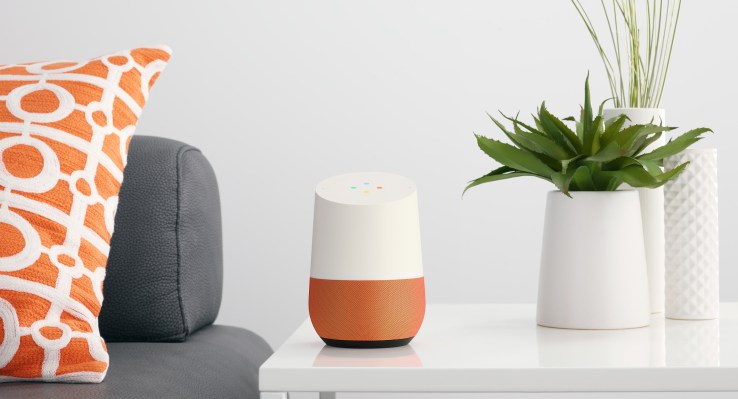Google Home mini is violating users privacy, recording 24*7 itself.

Smart speakers might be selling in millions, however, the safety issues with the device persist, especially in the absence of any government restrictions on internet-of-things devices. The recent discovery by Android Police’s Artem Russakovskii who was reviewing the Google Home Mini speaker, just before its launch, that the smart speaker had abruptly started recording him 24/7.
Google has acknowledged the problem after Russakovskii published his account on Tuesday, but the whole issue exposes the larger issue when it comes to smart speakers. Smart speakers are generally programmed to respond to certain voice commands such as “Ok, Google.” Only when such commands are given, do the onboard microphones on the smart speakers start recording the user’s response. The user can also give a command by holding his/her finger on the top of the speaker.
In this particular case, the smart speaker misinterpreted that the user had his/her finger on top of the smart speaker all throughout and was recording audio throughout for the user’s response. The only indication that it gave that it was recording was that its lights had been switched on. However, the smart speaker did not make any audible tone to inform the user that it had started recording. Google has issued a temporary fix for the speaker by switching off the touch feature — now the speaker will only respond to voice commands.
The company has issued a statement regarding the issue.
“"We learned of an issue impacting a small number of Google Home Mini devices that could cause the touch mechanism to behave incorrectly. We rolled out an update on October 7 to mitigate the issue. If you're still having issues, please feel free to contact Google Support at 1-855-971-9121 to get a replacement Google Home Mini."
The company has also stated that the issue will not affect retail units.
However, the issue has highlighted the problem with smart speakers generally, since they are intrinsically programmed to be smart — they can function by themselves. They are generally powered by an AI assistant, which evolves with usage, with the goal of providing a user all the information he/she needs automatically, eventually.
In a previous instance, an Amazon Echo called 911 after listening in to a domestic altercation, probably after picking up certain phrases from the suspect or the victim. However, in this instance, Amazon PR manager Rachel Hess said that the smart speaker had been programmed to call 911 and did not call the police automatically.
Such issues highlight the urgent need for protocols for smart speakers. If smart speakers can listen in to you, they might be able to do so without voice commands and there needs to be some safeguard that stops it from doing so.
It could lead to privacy violations too — the situation is reminiscent of CIA’s Weeping Angel hack, which allowed the law enforcement agency to listen in to users conversations.
Furthermore, since some smart speakers are connected to smartphones, chances are that a smart speaker could do even more, like calling people or record smartphone data.
The important issue is that the functionality and data transfer on smart speakers needs to be regulated at the earliest.


Comments
Post a Comment